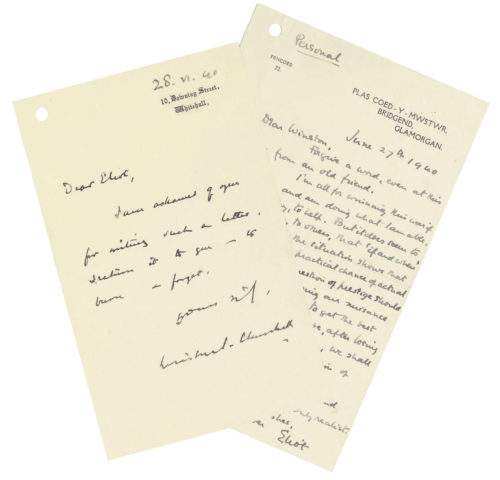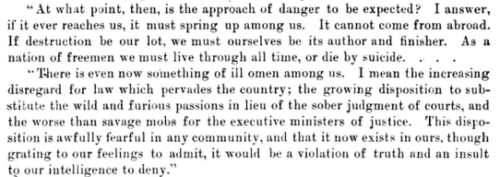
A new thought-piece from a powerful British government lobbyist (Vice President of Global Affairs, Facebook. Former Deputy Prime Minister of the United Kingdom, leader of the Liberal Democrats, member of Parliament) was introduced to me by Bryan Lee rather blankly as…
Facebook VP explains it’s your fault you’re fat, if you didn’t dress like that they wouldn’t say those things, and if you want to quit smoking stop buying cigarettes.
Of course such a framing of the argument had me hooked and off I went to read the entire piece.
It was a cringe worthy work of total tone-deafness.
However, it was even worse than buying cigarettes. This was tobacco plantation language.
Someone has taken time to write what amounts to a justification of colonialism as a partnership, where the subjugated love oppression as a new form of freedom.
Facebook seems to steal management values from colonialism, so maybe I should have called this post “taking the pith”.
Unfortunately this is not a hyperbole. Such nonsense is not unheard of in Britain, and this feels like someone on track towards repeating some of the worst mistakes in history.
As I’ve written here before, I spent a bit as an academic in the British archives reading actual memos from Foreign Office and Colonial Office staff. These arguments and their tone are very familiar, so perhaps I’m keying into that history and glaringly obvious signs that others haven’t studied or seen before.
There are moments as a historian when you open a dusty folder and stare at the hand written memo from Churchill, taking in the flow of every pen stroke and thinking about the power in his words. I might call those some of the highlights.

Then there are moments when some unknown chap in a pith helmet has telegraphed a racist screed about his vision to treat humans like animals and deny them freedoms because that is what they think another human deserves… leaving a knot in your gut as you can’t peel your eyes away from the historic relevance of disgusting cognitive blindness. Those are NOT some of the highlights.
This “Facebook VP…member of Parliament” very strongly invokes the latter.
I’ve also written here before about this colonialism topic in tech and why it’s a quagmire to avoid; so maybe I shouldn’t be surprised Facebook has a VP gleefully crossing the bright line.
Who else sees themselves in such a privileged power position as to say awful things about humanity without any real sense of responsibility?
Let’s break down a few examples.
1) You can’t kick the British Empire out of its colonies
Even if Facebook ceased to exist, social media won’t be — can’t be — uninvented. The human impulse to use the internet for social connection is profound.
Classic colonialism says you can’t just have the oppressors leave. They’re baked into targeted society by cruel design so they very often say it would be impossible for their victims to ever reach true independence.
Note here also how an “impulse…for social connection” is made falsely equivalent to social media. We don’t need social medial for social connections. That’s a logical fallacy to fit right into such proto-colonialism.
2) You owe the British Empire your good lives under colonial oppression
Personalized digital advertising not only allows billions of people to use social media for free, it is also more useful to consumers than untargeted, low-relevance advertising.
This is just so obviously and patently false, I could write long blog posts on it alone. First, advertising doesn’t make things free it obfuscates taxation without representation. Second, repeated studies have shown that targeting is garbage economics and totally fails to achieve its claimed goals. Third, about the only thing targeting is actually able to do is inflame bias and conflict. Fourth, the privacy loss and freedom-destruction of targeting systms is a ridiculously high price to pay. And the list goes on, as explained succinctly the Atlantic…
The eBay study suggested that people who click most ads aren’t being influenced. The Facebook study suggested that people who are being influenced aren’t actually clicking ads. It makes you wonder whether clicks matter, at all.
Given how Facebook systems currently are being run by unaccountable and immoral leadership, we easily can prove that an un-targeted, low-relevance experience is essentially a safer happier world for everyone.
3) The British Empire is your friend who prevents you from being a primitive savage
Turning the clock back to some false sepia-tinted yesteryear — before personalized advertising, before algorithmic content ranking, before the grassroots freedoms of the internet challenged the powers that be — would forfeit so many benefits to society.
A world before personalized advertising isn’t false. That really existed and still does exist. But it’s especially toxic here to see “grassroots freedoms” invoked completely opposite to actual events.
Again massively unfair fallacy, as it uses false equivalence to list individual freedom brought about on the Internet as something just like the surveillance used by giant centralized powers to track you everywhere. Apples are not bananas.
Pure propagandist nonsense.
I’m reminded of British colonialists who argued that Africans turning back the clock to sovereignty would lose their freedoms. Imagine a sentence like “some false yesteryear before British rule, before ships landed and men with guns invaded your homes, before men challenged the powers that be — would forfeit the benefits of being in a colony.” It sounds totally contradictory because it is.
4) The British Empire is the future because it controls the future. There is only one queen.
This is the magic of social media, the thing that differentiates it from older forms of media. There is no editor dictating the frontpage headline millions will read on Facebook. …it is of course the case that these systems are designed by people. It is Facebook’s decision makers who ultimately decide what content is acceptable…
Notice the doublespeak here? Magic and differentiation comes from having no editor, other than decision makers who ultimately are just… editors.
Older forms of media had decision makers who ultimately decided what content is acceptable. It is not hard to see there is no magic, no differentiation on that front.
The shame here is pretending an editor is not an editor to control the entire dialogue; evade laws and common decency in order to peddle basic oppression as some kind of exceptional “magic”.
5) You will find no better colony than under the British Empire. Floggings set to continue until morale improves.
And it is entirely reasonable to argue that private companies shouldn’t be making so many big decisions about what content is acceptable on their own. It would clearly be better if these decisions were made according to frameworks agreed by democratically accountable lawmakers. But in the absence of such laws, there are decisions that need to be made in real time. […] But of course, you don’t see the algorithm at work, and you have limited insight into why and how the content that appears was selected and what, if anything, you could do to alter it. And it is in this gap in understanding that assumptions, half-truths, and misrepresentations about how Facebook works can take root.
The logical fallacy here is no true Scotsman. He is pleading for “democratically accountable lawmakers” to deliver magical new frameworks (when plenty relevant ones already exist — Facebook has repeatedly violated basic safety and privacy).
Realize instead that lawmakers don’t have to lift a finger for everyone to already see that “you don’t see the algorithm” is a completely planned failure.
Nobody wrote a law telling Facebook they had to give users limited insights. There was no law that Facebook had to deliver gaps in understanding, Facebook wasn’t legally required to leave people with half-truths.
Facebook chose all that awful destiny for their users. They built a torture box and put people in it, then started selling tickets to see it and saying “we shouldn’t be doing this and it would be better if someone could tell us to stop, but in the meantime this person’s obvious lack of freedom for our profit is just their opinion”.
Consider the absolutely tone-deaf irony here. On a platform claiming to provide a fantastical modern world of intelligent algorithms to figure out the right fit of information to keep you informed, they also say if you’re uninformed from the giant gaps in their platform that’s entirely your fault.
The gaps they say are your fault are the exact things that Facebook has the most control over. They claim to be able to close all the gaps in knowledge about some random person’s day scooping ice cream, despite having nothing to do with it other than surveillance, but simultaneously claim they can’t close the gaps that would explain how their own work is done.
Shall I go on?
Let me instead turn to an Indian opinion piece from 2020 that clearly warned us about Clegg repeating the worst mistakes of history.
The attempt by Clegg, presently on the payrolls of the global leader in social media, to push for free flow of data is really a part of the larger concerted attempt by digital giants to protect their monopolistic business from potential competition from firms in emerging developing countries, including India. In a narrative reminiscent of the colonial times when the EIC was attempting to get a foothold in India, Clegg cleverly camouflaged the business interests of his principals and instead, projected free flow of data as being democratic and also in India’s interest.
The EIC is a reference to East India Company.
The company’s transition from trade to conquest has preoccupied historians ever since Edmund Burke famously attacked it as a “state in the disguise of a merchant”. […] This story needs to be told… because imperialism persists, yet “it is not obviously apparent how a nation state can adequately protect itself and its citizens from corporate excess”. And it needs to be read to beat back the willfully ignorant imperial nostalgia gaining ground in Britain…
Indeed. Clegg seems willfully ignorant as he lays out the colonialism thickly. Clearly he is at risk of using his position within a merchant to operate it as a state just so it may achieve ill-gotten corporate excess (of which he is a direct beneficiary).
If nothing else, this is all food for thought given Facebook has created a C-level role for blockchain yet keeps its ethics buried at the Director level (reporting through government relations).
There’s probably a very simple reason Facebook neither understands human rights and ethics at the C-suite, nor makes room at that level for someone who does.
Such a person surely would have blocked Clegg’s completely tone-deaf messaging that Facebook can justify its colonialist mindset.





